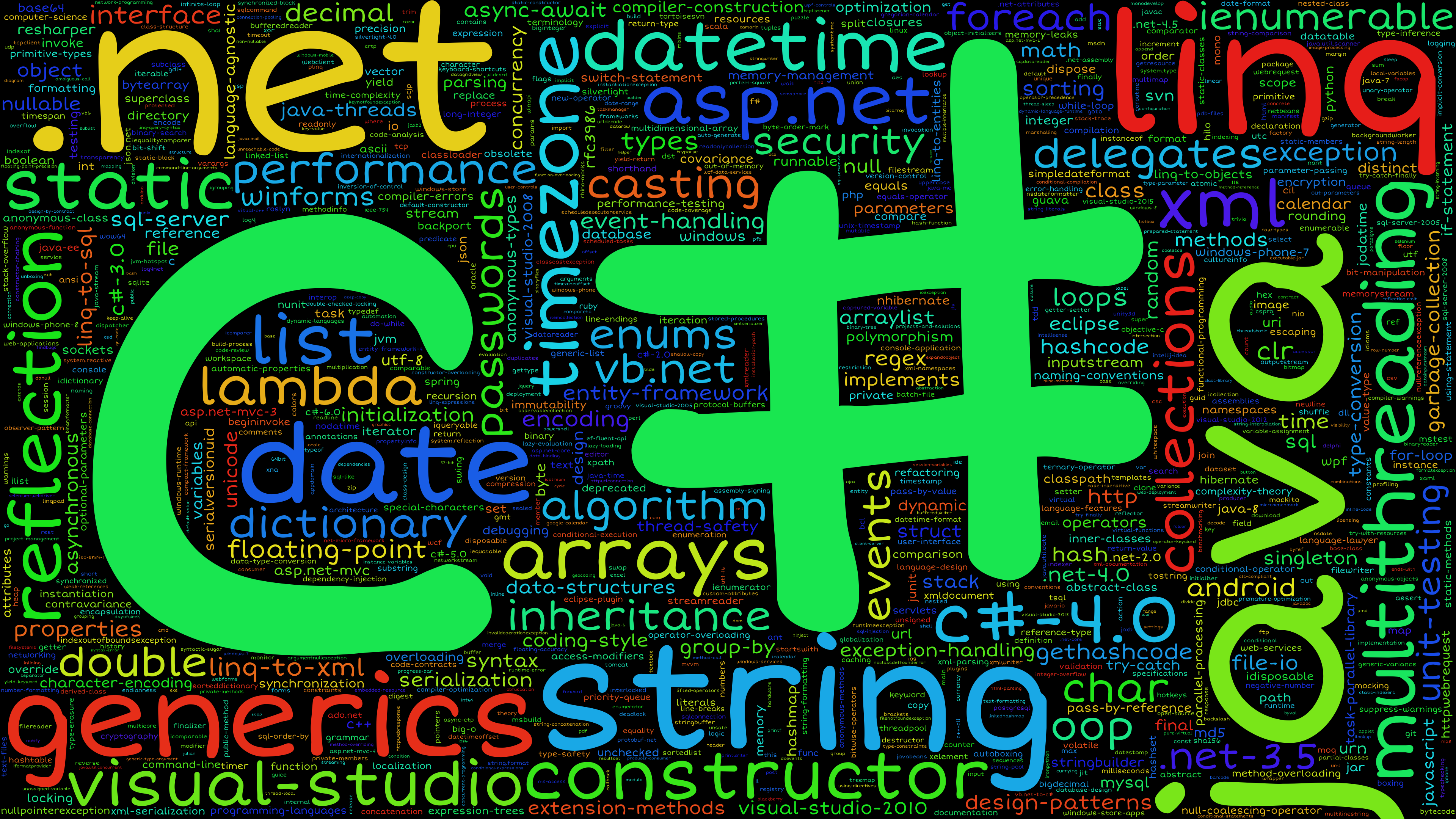A little word cloud generator in Python. Read more about it on the blog post or the website. The code is Python 2, but Python 3 compatible.
Fast install:
pip install wordcloud
If you are using conda, it might be even easier to use anaconda cloud:
conda install -c https://conda.anaconda.org/amueller wordcloud
For a manual install get this package:
wget https://github.com/amueller/word_cloud/archive/master.zip
unzip master.zip
rm master.zip
cd word_cloud-master
Install the package:
python setup.py install
worcloud depends on numpy>=1.5.1, pillow and matplotlib. To install it via pip, you will also need a C compiler.
If you're having trouble with pip installation on windows, you can find a .whl file at:
http://www.lfd.uci.edu/~gohlke/pythonlibs/#wordcloud
If the installation of the package fails, due to a missing pyconfig.h file, you need to install the python-dev package.
For Python 2.*
sudo apt-get install python-dev
For Python 3.*
sudo apt-get install python3-dev
If the compilation via gcc of the package fails, due to a missing Python.h file, you need to install the python-devel package.
For Python 2.*
sudo yum install -y python-devel
For Python 3.*
sudo yum install -y python34-devel
Check out examples/simple.py for a short intro. A sample output is:
Or run examples/masked.py to see more options. A sample output is:
Getting fancy with some colors:

The wordcloud_cli.py tool can be used to generate word clouds directly from the command-line:
$ wordcloud_cli.py --text mytext.txt --imagefile wordcloud.png
If you're dealing with PDF files, then pdftotext, included by default with many Linux distribution, comes in handy:
$ pdftotext mydocument.pdf - | wordcloud_cli.py --imagefile wordcloud.png
In the previous example, the - argument orders pdftotext to write the resulting text to stdout, which is then piped to the stdin of wordcloud_cli.py.
Use wordcloud_cli.py --help so see all available options.
Reddit Cloud is a Reddit bot which generates word clouds for comments in submissions and user histories. You can see it being operated on /u/WordCloudBot2 (top posting).
Chat Stats is a visualization program for Twitch streams, which generates word clouds for comments made by Twitch users in the chat. It also creates various charts and graphs pertaining to concurrent viewership and chat rate over time.
Twitter Word Cloud Bot is a twitter bot which generates word clouds for twitter users when it is mentioned with a particular hashtag. Here you can see it in action, while here you can see all the word clouds generated so far.
Stackoverflow Tag Cloud generates tag clouds of users on Stack Overflow or any Stack Exchange site. If you are contributing to Stack Overflow community, it's an easy way to share your expertise with others through an image. Here's Stack Overflow's highest reputation user Jon Skeet's tag cloud -
Send a pull request to add yours here.
Using Pillow instead of PIL might might get you the TypeError: 'int' object is not iterable problem also showcased on the blog.
The wordcloud library is MIT licenced, but contains DroidSansMono.ttf, a true type font by Google, that is apache licensed.
The font is by no means integral, and any other font can be used by setting the font_path variable when creating a WordCloud object.






